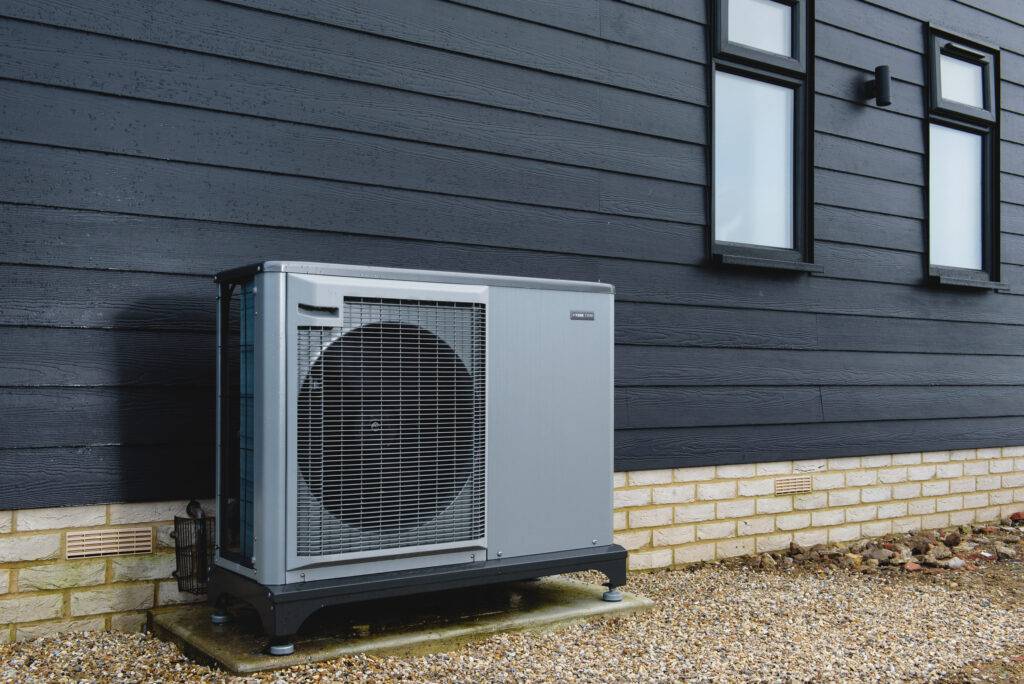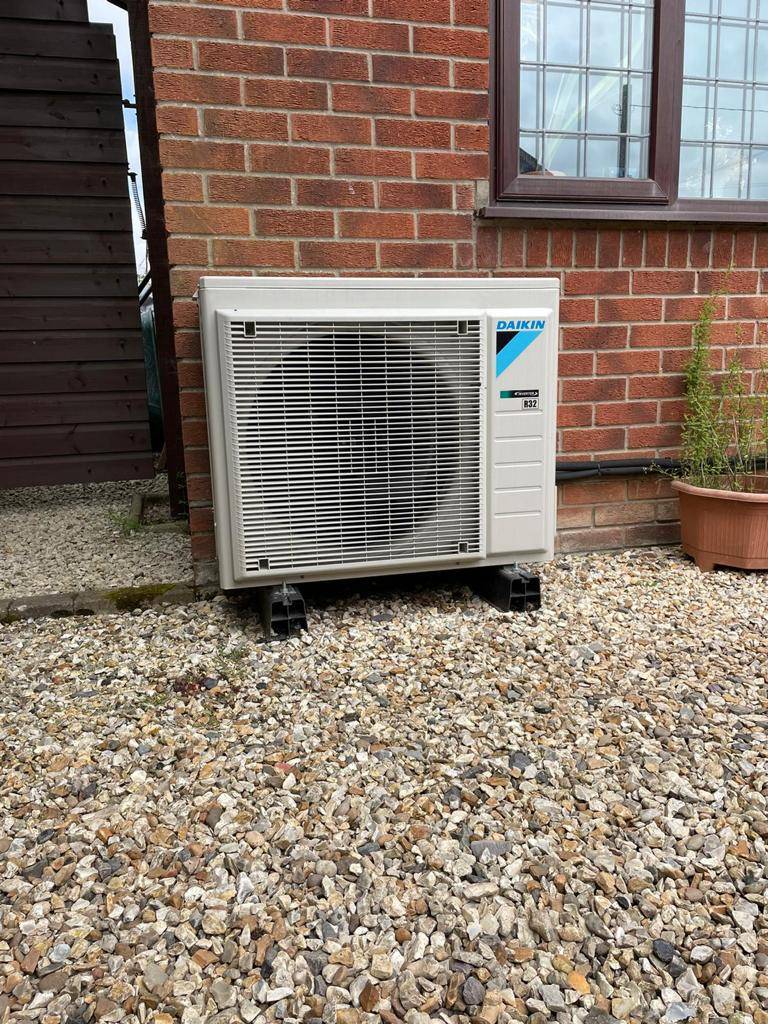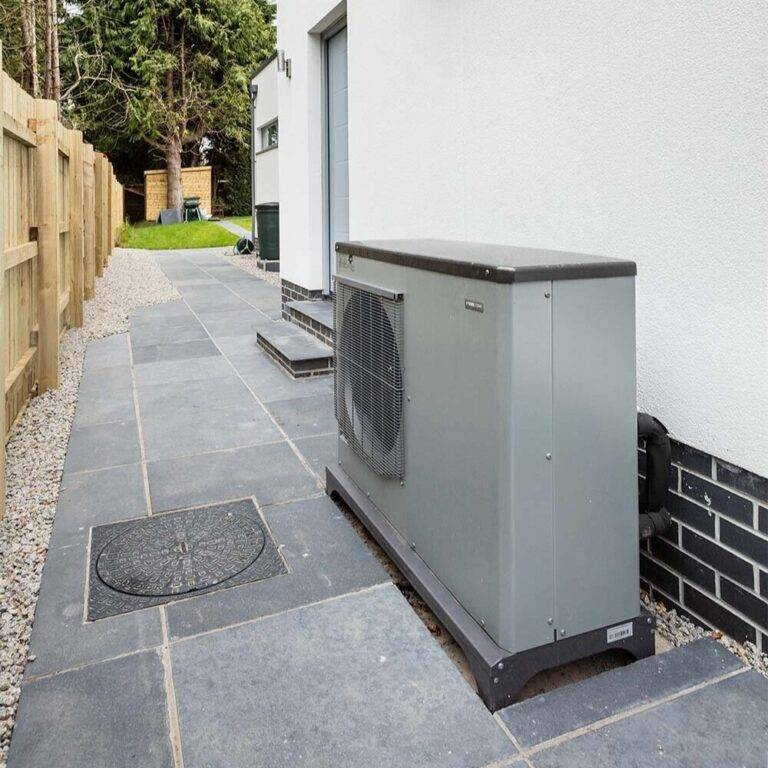How to Find the Best Local Air Source Heat Pump Installer
As energy efficiency and sustainability continue to gain importance, many homeowners are exploring eco-friendly alternatives for heating and cooling their homes. Air source heat pumps (ASHPs) have emerged as a popular choice, offering an efficient and environmentally responsible solution. However, choosing the right installer is critical to maximising the benefits of this technology. In this guide, we’ll provide a step-by-step breakdown to help you find the best air source heat pump installer near you, ensuring you make an informed decision that guarantees long-term efficiency and satisfaction. We'll also explore how air source heat pumps work, what they offer, and what to expect from the installation process.
Table of Contents
Understanding the Technology: What Are Air Source Heat Pumps?
How do Air Source Heat Pumps Work?
Air source heat pumps are a type of renewable energy system designed to extract heat from the outside air, even in colder weather conditions, and use it to heat your home. They work by absorbing heat into a fluid, which is then compressed to increase its temperature. This heat is transferred to your home’s heating system, whether it’s through radiators, underfloor heating, or warm air circulation.

The Two Main Types of Air Source Heat Pumps
What are the difference between the two?
There are two types of air source heat pumps, each suited to different property types and heating requirements:
These systems distribute heat through your wet central heating system, such as radiators or underfloor heating. They can also provide hot water. Air-to-water heat pumps are ideal for homes with existing central heating systems and are compatible with underfloor heating, making them highly versatile.
Air-to-Air Heat Pumps
Making your Choice
Each type offers unique advantages, and the right choice will depend on your home’s layout, insulation, and your specific heating or cooling needs. At Wise Green Energy, we’re here to help you determine which system is best for your property.

Key Benefits of Air Source Heat Pumps
Energy Efficiency
Air source heat pumps are remarkably efficient, often generating up to three or four units of heat for every unit of electricity they consume. This high efficiency can significantly lower your energy consumption compared to traditional heating systems, making ASHPs a cost-effective option in the long run.
Lower Carbon Footprint
Reduced Energy Bills
Year-Round Comfort
Eligibility for Government Incentives
In the UK, installing an MCS-certified air source heat pump can make you eligible for financial incentives, such as the Boiler Upgrade Scheme (BUS). This scheme can significantly reduce the cost of installation, making it easier for homeowners to invest in renewable energy solutions. As well as this, here at Wise Green, we also offer financing options.
Our Top Tips for Finding an Air Source Heat Pump Installer:
Start with Local Research
The first step in your journey to finding the right air source heat pump installer is conducting local research. Aside from word-of-mouth, finding trusted installers like ourselves, can be done by using search engines and other online resources. We take great pride in showing our reviews and spend considerable time making sure anyone interested in our services can find us easily online. Try search terms like “best air source heat pump installer near me” or “top-rated ASHP installation services in Norfolk and Norwich.
Google My Business listings are an excellent place to start as they provide key information such as customer reviews, business hours, and contact details. This helps you form an initial impression of the company’s reputation and services.
Check Certifications and Credentials
Once you’ve shortlisted a few installers, the next step is to verify their certifications and credentials. In the UK, the most important certification to look for is from the Microgeneration Certification Scheme (MCS). MCS ensures that the installer follows industry best practices and maintains high standards of quality.
At Wise Green Energy, we are proud to be MCS-certified, meaning our installations meet the highest quality standards, and you’ll be eligible for government incentives like the Boiler Upgrade Scheme (BUS).
Why does it matter? Well, choosing an MCS-certified installer ensures that your system will be installed to a high standard, which is crucial for efficiency and long-term performance.
Evaluate Experience and Expertise
Experience is essential when choosing an installer. Ask potential companies how long they’ve been in business and how much specific experience they have with air source heat pumps. An experienced installer will be more equipped to handle any challenges and optimise your system for maximum efficiency.
Questions you may want to ask:
– How many air source heat pumps have you installed in the last year?
– Can you provide examples of similar installations?
– Which brands do you work with, and why?
Read Customer Reviews and Testimonials
Customer reviews are one of the best ways to gauge an installer’s reliability. Look for reviews on independent platforms like Trustpilot, Google Reviews, or Checkatrade. Don’t just focus on the overall rating—read the individual reviews to see what previous clients appreciated and any areas they were dissatisfied with.
What to look for with reviews:
– Consistent positive feedback regarding professionalism, punctuality, and communication.
– How the company responds to negative reviews—do they address concerns and provide solutions?
Ask for References
A reputable installer will be more than happy to provide references from past customers. Speaking directly with previous clients can offer insights that go beyond online reviews. Ask them about their overall experience, whether the installation was completed on time and within budget, and if they’ve encountered any issues since.
The sort of questions to ask others that have had an ASHP fitted:
– Were you satisfied with the installation process and outcome?
– Did the installer meet the agreed timeframe and budget?
– Have you experienced any issues with your system since the installation?
Request Detailed Quotes
Price is always a factor, but it’s essential to get detailed quotes from at least three installers before making a decision. A transparent quote should break down costs for labour, equipment, and any additional services. Be cautious of quotes that seem too good to be true, as they may hide hidden costs or indicate the use of lower-quality materials.
Key components of a good quote:
– Itemised costs for all components and labour.
– Estimated timeline for installation.
– Warranty details and aftercare services.
Consider Customer Service and Aftercare
Installation is just the beginning. The best installers provide excellent customer service and robust aftercare to ensure your air source heat pump continues to perform efficiently. This includes regular maintenance, warranties, and a responsive team to handle any issues that arise.
At Wise Green Energy, we pride ourselves on our comprehensive aftercare services, ensuring that your investment is protected for years to come.
Verify Local Knowledge and Experience
Local knowledge is invaluable when it comes to installing air source heat pumps. A local installer will understand how regional climate conditions and regulations affect the installation process. They will also have established relationships with local suppliers, which can expedite the process and reduce costs.
Questions to ask:
– How do you adapt installations for local climate conditions?
– Are there any regional regulations or incentives I should be aware of?

What to Consider Before Installing an Air Source Heat Pump
Property Suitability
ASHPs are most efficient in well-insulated homes, as insulation helps retain the heat generated by the system. It’s important to assess your property’s insulation before installation. Additionally, you’ll need adequate outdoor space to place the unit, ideally in a location that minimises noise and disruption.
Heating System Compatibility
Planning Permission
In most cases, air source heat pump installations are considered permitted developments in the UK, meaning they don’t usually require planning permission. However, if you live in a listed building, a conservation area, or an Area of Outstanding Natural Beauty (AONB), you may need to obtain additional permissions before proceeding with the installation. It’s always worth checking with your local planning authority if you’re unsure about the requirements in your area.
Installation Costs
The upfront cost of installing an air source heat pump can be higher than traditional heating systems like gas boilers. However, the long-term savings on your energy bills and the availability of government incentives like the Boiler Upgrade Scheme (BUS) often offset these initial costs. Additionally, air source heat pumps typically have a lifespan of 15-20 years, meaning your investment will pay off over time with lower energy consumption and reduced running costs.
Make the Right Choice with Wise Green Energy
Choosing the right air source heat pump installer is critical to ensuring your system is installed correctly and runs efficiently for years to come. By following this step-by-step guide, you can confidently select an installer who will provide you with a reliable, cost-effective, and environmentally friendly solution.
At Wise Green Energy, we are committed to delivering high-quality air source heat pump installations tailored to your home’s specific needs. With our MCS certification, extensive experience, and focus on customer satisfaction, we are your trusted partner for renewable energy solutions.
Our team will guide you through every step of the process, from initial consultation and property assessment to installation and aftercare. If you’re ready to explore the benefits of air source heat pumps, get in touch with us today for a detailed quote. Let us help you make the switch to a more sustainable, energy-efficient heating and cooling system for your home.

